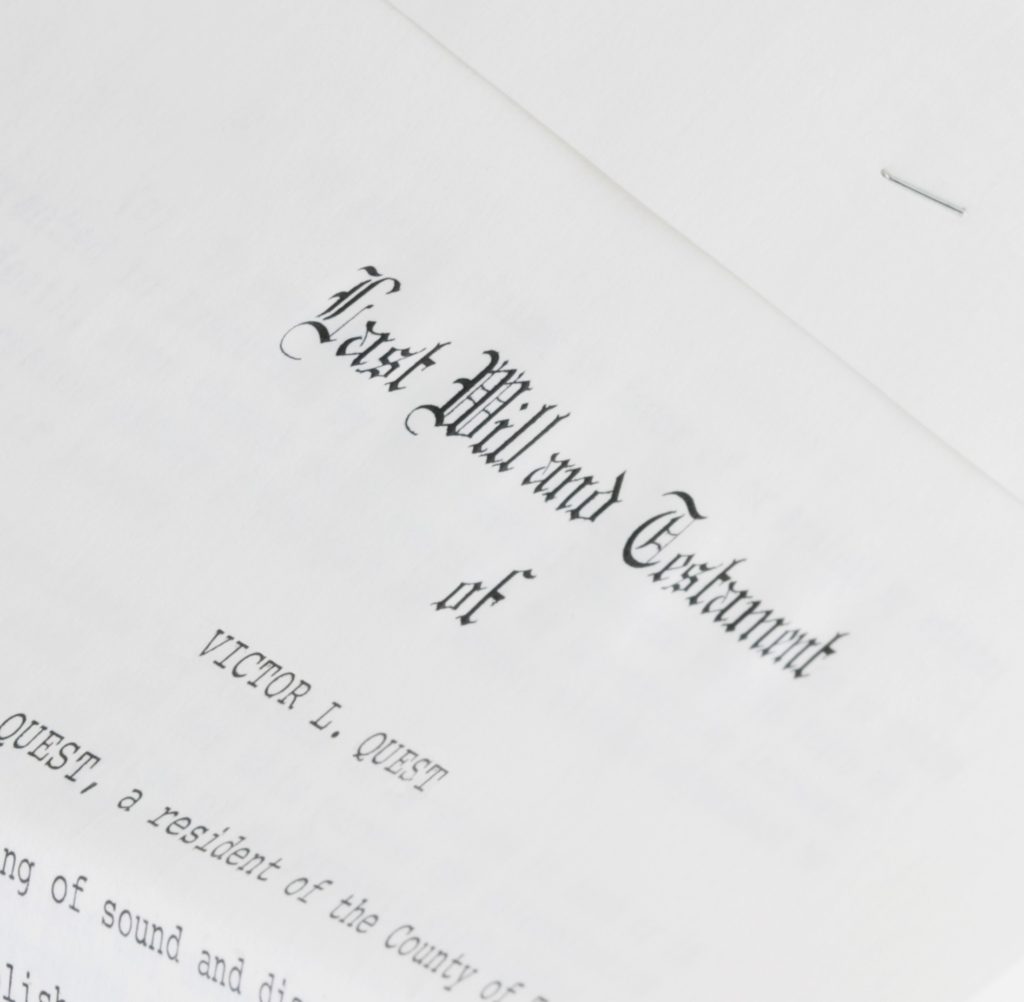Legal Insights
We invite you to browse our easy-to-read collection of law-based articles.
The articles should not be used as a replacement for specific legal advice.
Is your data protected?
The Jamaica Data Protection Act only covers personal data with special attention given to sensitive personal data.
The idea behind our legislation is to protect personal data relating to a living individual, or a deceased person up to 30 years after death.
“…like oil, data is valuable, but if unrefined, it cannot really be used. It has to be changed into gas, plastic, chemicals, etc. to create a valuable entity that drives profitable activity. So, must data be broken down, analysed for it to have value.”-Clive Humby, Data Scientist

Paternity & child maintenance-Part 1
Generally, a man’s name is not added to a birth certificate unless he accepts the child as being his. If a man has doubts, he is entitled to verify the biological relationship before his name is added. Once a man’s name appears on the birth certificate, he publicly confirms his duty to contribute to the child’s well-being. As one commenter stated, sometimes a man may find it challenging to express his doubts regarding paternity to the mother. However, remaining silent and simply ignoring the child benefits no one.

Paternity & Child Maintenance-Part 2
Another issue raised by non-residential parents concerns the cost of attending private schools versus public schools. Parents often disagree on whether a child should be sent to a private school. Which is followed by the other complaint by non-residential parents, that the residential parent without consultation, has enrolled a child in a private school without their consent. This highlights the misconception that a residential parent can decide which school to enroll a child in, without asking the non-residential parent.

Paternity & Child Maintenance-Part 3
A parent living overseas with the child may also seek the assistance of the court in Jamaica. This parent may either come to Jamaica to get a maintenance order, or obtain an order from the country she or he lives in. Jamaica has an agreement with certain countries or, parts of those countries that they will enforce each other’s maintenance orders. In brief, the process requires a certified copy of the foreign court order to be provided to the Minister of Foreign Affairs and Foreign Trade. The Minister of Foreign Affairs and Foreign Trade will then send the foreign order to the appropriate court personnel, who will take steps to register the foreign order in Jamaica if it is confirmed that the paying parent actually resides in Jamaica.

Court orders regarding your current spouse, or ex-spouse usually state how much should be paid, and for how long. Where a request for maintenance is made by a former spouse, the Court seeks to ensure that the ex-spouses can have a “clean-break” from each other. How this is achieved varies depending on the circumstances. In some cases, the court may order that a lump-sum is to be paid, and when. Otherwise, the court may decide that periodic payments should be made with a specific end date.

Maintenance & the Golden Years
In a previous article, we highlighted that while grandparents often volunteer to assist with maintaining their grandchildren, they are in fact legally obligated to do so if the circumstances justify it. Similarly, grandchildren are legally obligated to maintain their grandparents. This legal obligation of grandchildren only arises where their own parent is unable to do so, due to their own physical or mental illness, or disability.

Maintenance secured, now what?
What is one thing love birds do not want to hear? Answer: Consult a lawyer before marriage/cohabitation. Did someone just throw a tomato? I hope not. Consulting a lawyer might not be romantic but it is useful. The law allows spouses, and persons thinking of getting married, or cohabiting with each other to make a written agreement. This agreement may cover matters such as the obligation to maintain each other, and or any unmarried minor child, or unmarried child in need of maintenance due to physical or mental infirmity or disability. Each person signing this agreement must have independent legal advice.
Should you be given custody? Part1

The default position is that each parent is entitled to the custody of his, or her child. Our law confirms this by allowing either father, or mother to apply to the Court to modify this default position. The parent making the application is often asking the Court to approve him, or her as the parent who will have the physical control of the child on a daily basis; the parent with whom the child resides.
Should you be given custody? Part2

For joint custody to be granted, the Court will need evidence that the parents are able to communicate effectively, and make important decisions together. For the Court to make that conclusion the parents’ actions must have shown that they are reasonably mature, and able to communicate with each other. This is particularly important, since unexpected circumstances may arise which will require the parents to quickly make decisions instead of waiting for a Court to make the decision.
Should you be given custody? Part3

Perhaps you have found new, and exciting romantic love which requires you to relocate overseas. Or, maybe you need to relocate overseas to pursue better career opportunities. Whatever your reason, in asking the Court to determine the custody arrangement for your child, the desire to relocate will be an important consideration.

Co-parenting| Supervised visits : Should you be given custody? Part 4
It is not uncommon for a residential parent to desire that the other parent have supervised access. The reasons for this desire/request are varied and often include allegations of over exposure, introduction to the use of illegal drugs, or other unwholesome substances such as alcohol, sexual impropriety, indecent exposure, and violence. These are all serious allegations, and the parent making the allegations must be prepared to substantiate the allegations.

Your will only comes into effect after you have passed. Since you will not be physically available to explain what you intended, it is wise to ensure your will can survive any challenges. Persons may seek to challenge your will either because they are in shock that you left nothing for them or not enough, or they think you were forced to sign the document. Next week’s article will highlight common issues which our courts had to resolve. Land tends to cause the most problem.
Last Will & Testament: Is your gift enough?
A testator’s intentions are not interfered with lightly but our laws recognize this may be necessary. Jamaica allows persons who believe that a will did not make reasonable financial provision for them to ask the court to make additional provision.
Last Will & Testament: Are you of a sound mind?

A key consideration in preparing, and challenging a will is testamentary capacity. In simple terms, this means the testator must be of a sound mind, memory and understanding, at the time of preparing the will and signing the will.
Last Will & Testament : Protecting your inheritance

Often times, focus is placed on executors since they are responsible for distributing the gifts under the will. But beneficiaries also have a role to play, and are entitled to protect the assets they know are given to them as gifts.

Last Will & Testament 101
Securing the inheritance
If you stand by and watch another person take control over property you know to be yours, and allow that person to spend money on it, you are at risk of that person making a claim to your property.

Last Will & Testament 101
The lost will
If you make a will, be sure to secure the original as you would protect any other important document, and have several originals. Where your original cannot be found, you are at risk of being considered as having passed without a will.
Is your love as deep as your pocket? Part I II

In certain situations such as divorce, or the end of cohabitation, each spouse is entitled to 50% of the family home. It is a ‘default position’ because it can be challenged. Either spouse can request more than the 50%.
Is your love as deep as your pocket? Part II

The family home basically being, the house owned by one or both spouses, that is used habitually, or from time to time as their only, or main family residence. When a couple decides to officially go their separate ways, their love has usually long dissolved into nothingness. The division of the family home often becomes a major issue. One spouse might think 50% is the least she or he should get. The other spouse might find a 50/50 division repulsive.
Is your love as deep s your pocket? Part III

From looking at ‘how not to fatten fowl for mongoose’ in Part V, we know that the agreement needed to be signed, and the husband needed to get legal advice before signing. The husband’s denial of the contents of the draft agreement made it even more irrelevant.
Is your love as deep as your pocket? Part IV

Part III looked at some of the improvements the husband made, and relied on to justify getting 50% of the family home. As he admitted at trial, those improvements were voluntary, and done for his benefit.
Is your love as deep as your pocket? Part V

Our laws not only allow couples to make a written maintenance agreement but also written agreements for the division of property. This written agreement for the division of property can be made before or after marriage, or cohabitation. The seriousness of this written agreement is confirmed by the legal requirement for each person to get legal advice before signing. Are you romantic, realistic, or both?
Is your love as deep as your pocket? Part VI

What amounts to separation in a marriage depends on the circumstances overall. It may be leaving the marital bed, or leaving the home.
Is your love as deep as your pocket? Part VII

The division of property at the end of a marriage, or cohabitation is often contentious. When the court is asked to help, several factors such as the length of the marriage become important. Generally, a marriage that lasts under 5 years is considered a short marriage in Jamaica.
Is your love as deep as your pocket? VIII

Was your contribution to the marriage miniscule in the grand scheme of things? The court will consider your contribution at the end of the union.
Is your love as deep as your project? Part IX

From looking at ‘how not to fatten fowl for mongoose’ in Part V, we know that the pre-nup needed to be signed, and the husband needed to get legal advice before signing. The husband’s denial of the contents of the draft agreement made it even more irrelevant.
The Student & the Visitor Part I

Universities usually have their own internal rules/ laws. In this case, The Visitor, is the person appointed, and granted the exclusive right to rule on disputes that arise from the university’s internal rules/laws.
The Student & the Visitor Part II

Ensuring you have sued the correct person is critical. In this case, the Court of Appeal decided that since the Visitor is independent of, and separate from the university, the delay in hearing the case was not the university’s fault. This meant that the student had incorrectly sued the university and should have sued the Visitor instead. The student would not be suing the Queen in her personal capacity but as the Visitor/Her Majesty in Council.

New Money vs. Old Money
(Central Bank Digital Currencies vs. Cryptocurrencies)
CBDCs are sometimes promoted as safer than cryptocurrencies. How safe they are will be based on the technology, and security standards used. Some use blockchain technology (e.g., the Eastern Caribbean’s DCash) which is used by many cryptocurrencies. Jamaica opted not to use blockchain technology. The BOJ instead chose to use “technology that could easily integrate with its real-time settlement system, known as JamClear.”

Cannabis versus Law
Is it really just a plant?
Jamaica has a very generous definition of hemp. Under Jamaican law hemp is defined as the cannabis sativa plant or any part thereof with 1% or less THC. In other countries hemp is defined as having 0.3% THC or less, and anything above 0.3% THC is classified as marijuana. This matters because in some countries hemp may be used for making food.


I do not even know how I ended up here, but I thought this
post was great. I don’t know who you are but certainly you are going to a famous
blogger if you aren’t already 😉 Cheers!
Thank you.
For most up-to-date news you have to visit internet and on web I found
this site as a finest web site for most up-to-date updates.
Write more, thats all I have to say. Literally, it seems as though you relied on the video to make your point.
You definitely know what youre talking about, why waste
your intelligence on just posting videos to your weblog when you could be giving us something informative to read?
Thanks for the review. I started doing videos because it is more convenient for some persons to listen while doing other things.